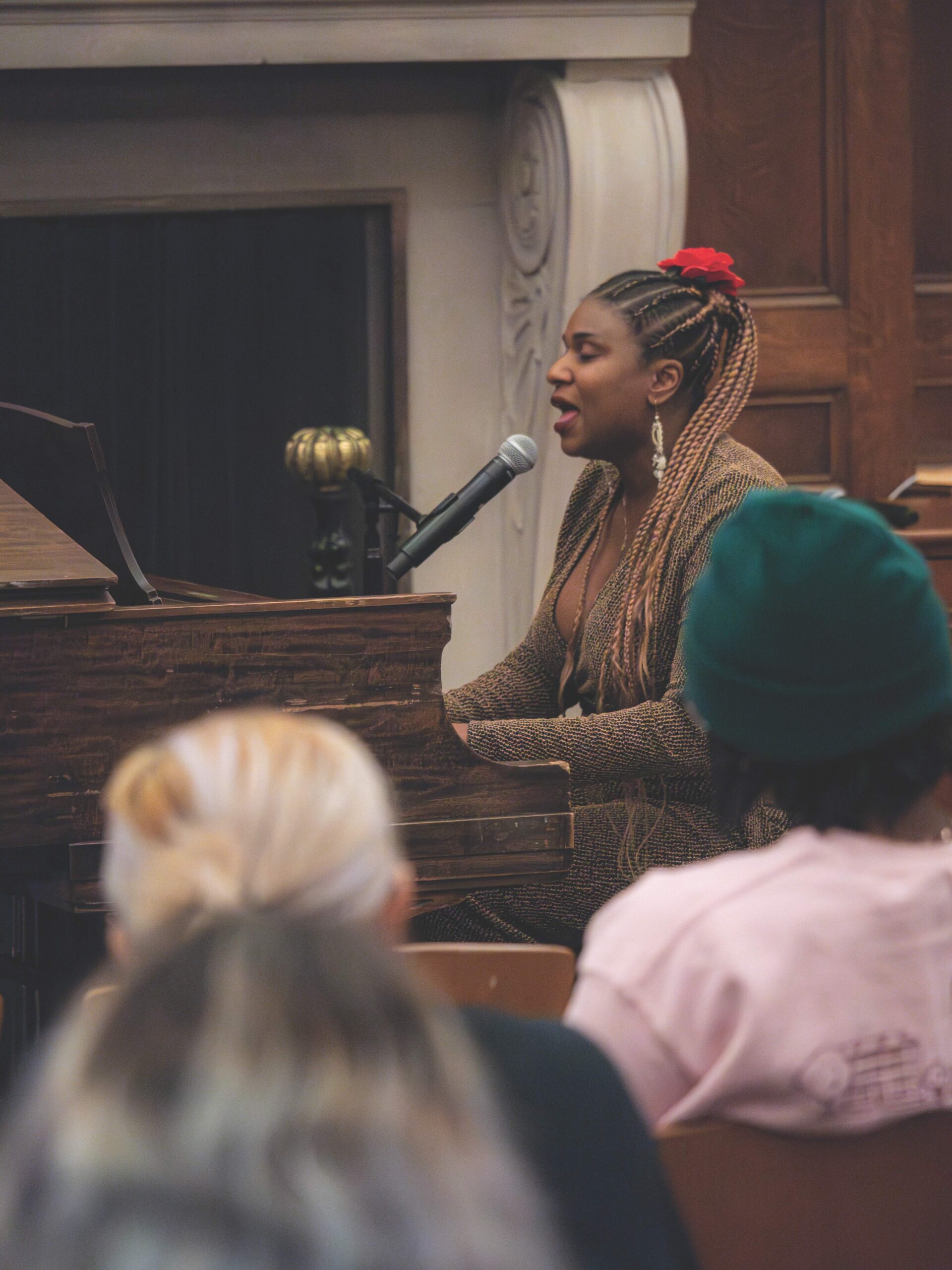Disabled Students Association brings Lachi to celebrate accessibility through speech and song
December 1, 2023
 Alex Spear
Alex SpearOn Thursday, the Disabled Students Association (DSA), in collaboration with a collection of other clubs and affinity groups, brought award-winning singer-songwriter and activist Lachi to campus in celebration of Disabled Persons Day, which is observed on Sunday, December 3.
Every year, DSA hosts a guest speaker to honor and celebrate disability, and Lachi, through a combination of public speaking, song and audience activities, worked to create a learning space in her performance in Moulton Union’s Main Lounge. She not only honored the difficulties of living in a world that is built through a lens of ability, but also celebrated herself and the disabled community.
“Hopefully you walk away feeling good about disability and this discussion of disability culture, disability identity, disability pride, beyond just disability inclusion and beyond just accessibility,” Lachi said.
Lachi advocated for a social model of disability, which contrasts with the typical medical model. This traditional viewpoint of disability builds a structure in which the disabled person is what must be “fixed,” rather than their environment, whereas the social model focuses specifically on how building accessibility into societal systems can do the opposite, fixing the damaging—and damaged—world, not the person living within it.
“Did you know you can have a disability without being impaired?” Lachi said. “I can go to a library, and as long as there’s Zoom Text and screen reading, I’m not impaired. So, as long as society can provide accessible and inclusive stuff, then, folks, that’s the social lens of disability.”
Disability Culture Coordinator Claude Olson saw Lachi’s program as a way to build community relationships.
“I think that [Lachi] adopts what we’re trying to work towards,” Olson said, “which is the social model [of disability], trying to celebrate disability as a cultural experience [and] helping people to share their own personal experiences within this shared space.”
The DSA worked to make the space as accessible as possible, providing a hearing loop for hearing aid users, a live online transcript and spoken visual descriptions. The group also provided resources and flyers as well as a sundae bar.
Director of Student Accessibility Lesley Levy highlighted the importance of interdependence in the College’s programming for Disabled Persons Day, recognizing DSA co-leader Libby Riggs ’26 for leading the effort.
“[Planning Lachi’s talk] was very collaborative, primarily working with the students in the Disabled Students Association,” Levy said.
For Lachi, disability culture, though often rooted in oppression, can have a joyful outcome.
“It’s the art we make because of the different minds and bodies that we come in, the music we make, the things we talk about, the perspectives of how we navigate the world differently, and it is rooted in a lot of the exclusion that we face,” Lachi stated. “It’s rooted in problem solving. It’s rooted in creative thinking.”
Riggs echoed this celebration of culture and highlighted how art and music can be a vehicle for societal change surrounding how disability is perceived and addressed.
“I think the arts—especially music—have a capability of bringing people together, both the audience and the speaker,” Riggs said. “[Lachi’s] role both as a musician and her identity as a Black disabled woman, discussing the music industry, in terms of accessibility. In terms of disability inclusion—I think that can be directly applied to Bowdoin and thinking about how Bowdoin can better talk about disability and think about disability. [We can] have those conversations and have [them] unapologetically and really be able to engage in thoughts around disability.”

Comments
Before submitting a comment, please review our comment policy. Some key points from the policy: